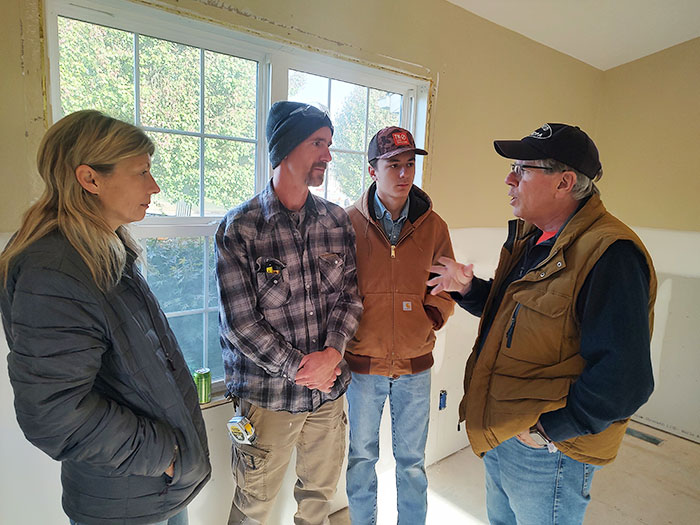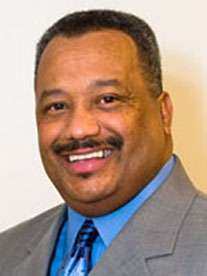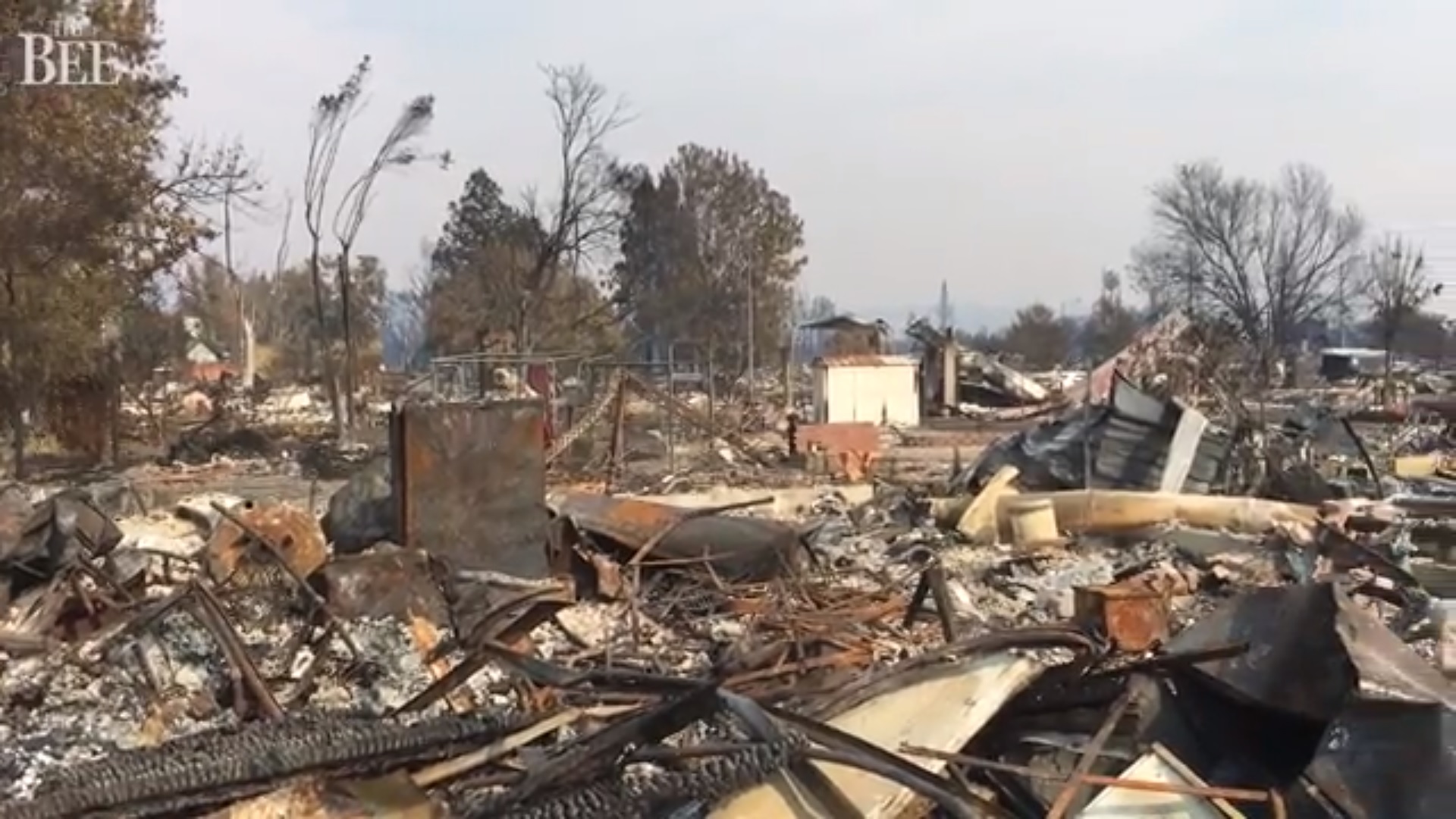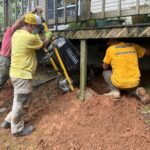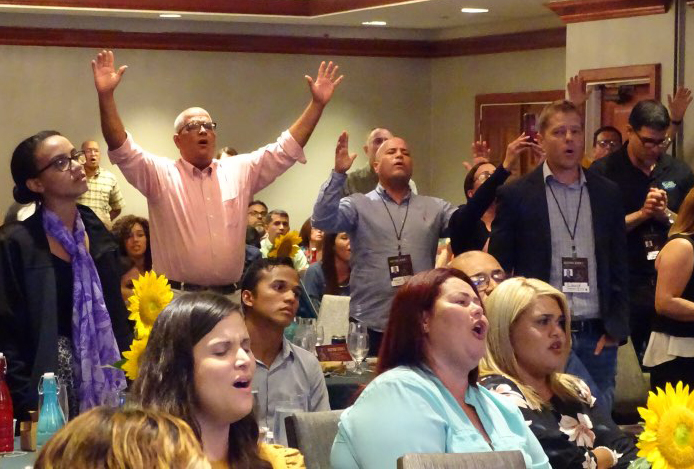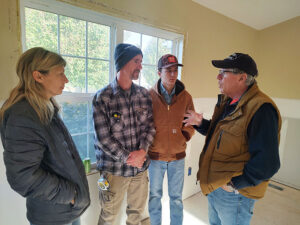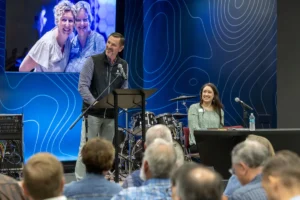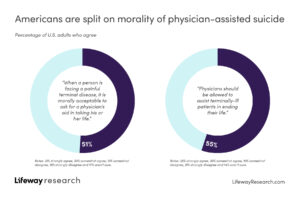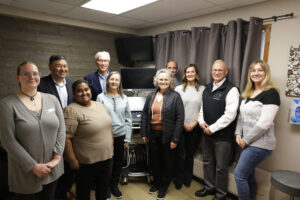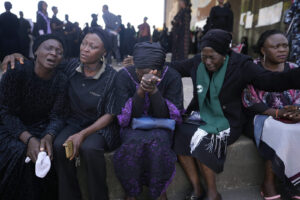
GREENEVILLE, Tenn. – David Green was planning to be out of town on the final weekend of September last year.
Green, the senior pastor at First Baptist Church, Greeneville, had two weddings on his schedule.
Those plans, however, ultimately had to be altered.
With little warning, Hurricane Helene created a series of storms that ravaged parts of East Tennessee, causing unprecedented flooding in Greene County and the surrounding areas.
Green knew where he needed to be.
“I was at the wedding in Knoxville when things started breaking loose and dams started bursting and problems were taking place,” Green said. “I knew I could not be out of the pulpit on the weekend of the biggest storm that’s hit our county in 500 years. So, I made the decision that I was coming home to preach.”
The days that followed were a whirlwind for Green, as he saw the members of FBC dive in, headfirst, to the recovery efforts in their area.
The church played a major role in the rebuilding of six houses in the span on four days during the early stages of the recovery process (see full story), and continued with more rebuilds in the weeks and months that followed.
And now, a full year later, the work continues.
“Hurricane Helene has definitely been a big part of ministry for me this year,” Green said.
“Today, this very day, the church is purchasing furniture for people that were flooded out on Davy Crockett Lane here in Greene County. We’re not stopping.”
Immediate impact
After the storm, the members at FBC knew there was no time to waste. People were hurting and needs were immediate.
Many residents were without running water, and hundreds of houses along the river were destroyed.
FBC quickly joined forces with Aidnet — a nonprofit organization that assists with long-term recovery efforts — and went right to work. “One of our deacons at FBC became the president of Aidnet of Greene County,” said Green. “They (Aidnet) were one of the ways to outsource materials.”
In the meantime, many of the FBC members wanted to know how they could help financially. Green met with the church’s finance committee chairman that morning.
“I told him that I really didn’t know what was going to happen, but I told him that we needed to start a designated account for Hurricane Helene relief only,” Green said.
“He asked me, ‘what are we going to start it with?’ And I said, ‘I don’t even know. But we need to start that account. And if we start it with a zero, that’s fine with me.”
Later that day, Green was walking to his car when he was stopped by a man and woman from FBC.
“They came up to me and asked if they could make a contribution to start helping some people with flood relief. I told them, ‘sure, you can’ and they said, ‘Will 100 be a good start?’”
Green thought the couple meant $100. Then the man and his wife told Green, “We will have a check for $100,000 in the church office by Wednesday” of the following week.
Green could hardly believe it. “It blew my mind,” he said.
In the days that followed, more and more people began contributing. The FBC deacons and church family also voted to include some of the church’s reserve funds in the hurricane relief designated account.
“We’re not saving up for the next disaster,” Green said. “Until every person we know gets fully restored, we’re not going to stop.”
“We want the funds that God gave us to be used,” he said. “That money is not going to sit in the bank. It will be spent by the end of this year.”
Teaming up
Early in the recovery process, Green received word from Bruce Chesser, senior pastor at FBC Hendersonville, Tenn., that his congregation would be sending supplies, money and water — “We’re talking trailer loads of water,” said Green — to help with the relief efforts.
Grace Baptist Church in Springfield, Tenn., where Steve Freeman is senior pastor, also partnered with FBC in the recovery efforts.
“Steve called me and said, ‘We want to help Greeneville’ and he sent two work groups over,” said Green. “That may not sound like a lot, but when you have over 100 people in your work group, that’s a big deal.”
And the list didn’t stop there. Church after church contacted FBC to see how they could be involved. Sacrificial giving was a big part of the recovery efforts, with churches like FBC Maury City, Tenn., where Mike Waddey is pastor, lining up to give.
“People wanted to do anything they could to help,” said Green. “There was one church that said they wanted to take up a special offering and send the money straight to us to use as we saw fit. And that meant as much, if not more to me, than anything you could imagine. They aren’t a big church with a big budget. But they gave from their hearts.”
Green said the recovery efforts had a “no-previous-experience-required” policy. There was also no minimum age requirement. Anyone who wanted to help could do so.
“We had youth getting mud out of people’s houses,” Green said. “It was amazing to see the outpouring of people, even people that I didn’t even know really well, calling me saying, ‘Hey, how can we help? How can we give?’”
Efficient work
Green said seeing six houses rebuilt in the span of just four days was nothing short of a miracle, adding that the early surge in productivity set the tone for all the work that has followed, with one home after another rising from the ground.
The partnerships with Grace Baptist, the TBC and numerous other churches paved the way for success.
He noted that the rebuild teams worked feverishly, night and day.
“These guys hung lights on poles so they could work 24/7,” said Green.
“And after we rebuilt the six houses on Davy Crockett Lane, we got a call from Washington County that our local Aidnet group had been told that they were restricted with their funds only in Greene County. And I said, ‘Well, let’s go to Washington County and do the next group.’”
There, the frantic pace continued: Four more houses in three days.
“These were houses on the river,” said Green. “There was nothing left to them. But they were rebuilt.”
Green said those who have been involved with the recovery efforts showed no concern about who got the credit.
“At the end of the day, it’s not about how much money was raised and disbursed,” he said. “It’s about meeting people’s needs.
“In the past, we’ve all seen people who were looking to get a medal pinned to their chest for their work. That hasn’t been the case with this. It’s been all about helping.”
This article originally appeared in the Baptist and Reflector.
